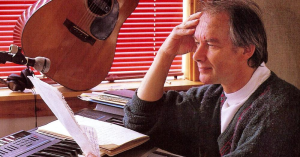TORONTO — Israeli songstress Yasmin Levy is dedicated to keeping Ladino alive.
“It’s my life mission,” she said in an interview from her home in Israel last week.
Levy, an international star who promotes Ladino through her concerts, will perform in Toronto on Saturday, Feb. 11, at 8 p.m. at the Royal Conservatory of Music’s Koerner Hall.
In her only appearance here, she will share the stage with Omar Faruk Tekbilek, a musician from Turkey and one of the world’s foremost exponents of Middle Eastern music.
This will be the 36-year-old singer’s third concert in Canada since 2007, when she sang in Calgary and received a rapturous reception.
“It was just amazing,” she recalled. “I’ll never forget it.”
Levy, who has made five albums since turning professional, was born and raised in a Ladino household in Jerusalem’s Bakaa district.
Her father, Yitzhak, a Turkish-born composer and cantor who died in 1977, worked tirelessly to preserve Ladino. He was head of the Ladino department at Israel’s state radio, and during his lifetime, he published books about Ladino.
Levy’s mother, Kochava, a singer with Turkish roots who has performed in Ladino, is immersed in this dying language as well.
Known as Judeo-Spanish and Spaniolit, and sometimes referred to as the Sephardi equivalent of Yiddish, Ladino was spoken by Jews expelled from Spain and Portugal.
Their descendants enriched Ladino with words borrowed from languages such as Hebrew, Turkish, Greek, Bulgarian and French.
Ladino was struck a near-death blow when tens of thousands of its native speakers in the Balkans were murdered by the Nazis during the Holocaust.
Survivors perpetuated the language in Israel – the country with the largest number of Ladino speakers today – and elsewhere.
By all accounts, about 200,000 Jews have a working knowledge of Ladino today. Levy said she did not know how many Ladino speakers live in Canada.
Although Levy fully shares her late father’s love for Ladino, she is not fluent in it. “But the day will come when I’ll dedicate myself to learning it,” said Levy, who was featured in a 2010 documentary, Music Mon Amour, a German/French co-production.
Levy’s musical interests were formed in childhood. From the age of six onward, she studied piano. At 20, she gave her first concert, which took place in Jerusalem.
Two years later, she made her foreign debut in Essen, Germany.
Recording her first album, Romance and Yasmin, in Ladino, Levy began singing in Spanish after studying flamenco in Seville, Spain, on a scholarship.
Since then, she has released two albums, La Juderia and Sentir, both of which have been in Ladino and Spanish.
She is currently working on her fifth album, which still remains nameless. “I’ll know the name at the end of the process,” she said.
It will first be available in stores in Europe in September.
Levy composes her own songs, drawing inspiration from Sephardi traditions, Spanish flamenco, Portuguese fado and even the lyrics of Canadian Leonard Cohen.
The themes of her songs turn on love and romance, the longing for Jerusalem and her own personal experiences.
Since her breakout concert in Germany a decade ago, Levy has performed mostly abroad, in countries ranging from Turkey and Spain to Poland and Sweden.
She toured the United States in 2009 and again last year.
Levy travels with her husband, Yishay, a member of her band. They have been married for eight years. Seven months ago, she gave birth to their first child.
When she is not on tour, she and her husband live in Mevaseret Zion, an affluent town high in the mountains about 10 kilometres from Jerusalem.
Though Ladino is an integral component of her repertoire, Levy is less than sanguine about its long-range durability.
“It won’t survive. Ladino speakers are old, and my generation doesn’t speak it. You find it in songs, books and archives today.”
UNESCO, a United Nations agency, recently recognized Ladino as an endangered language.






